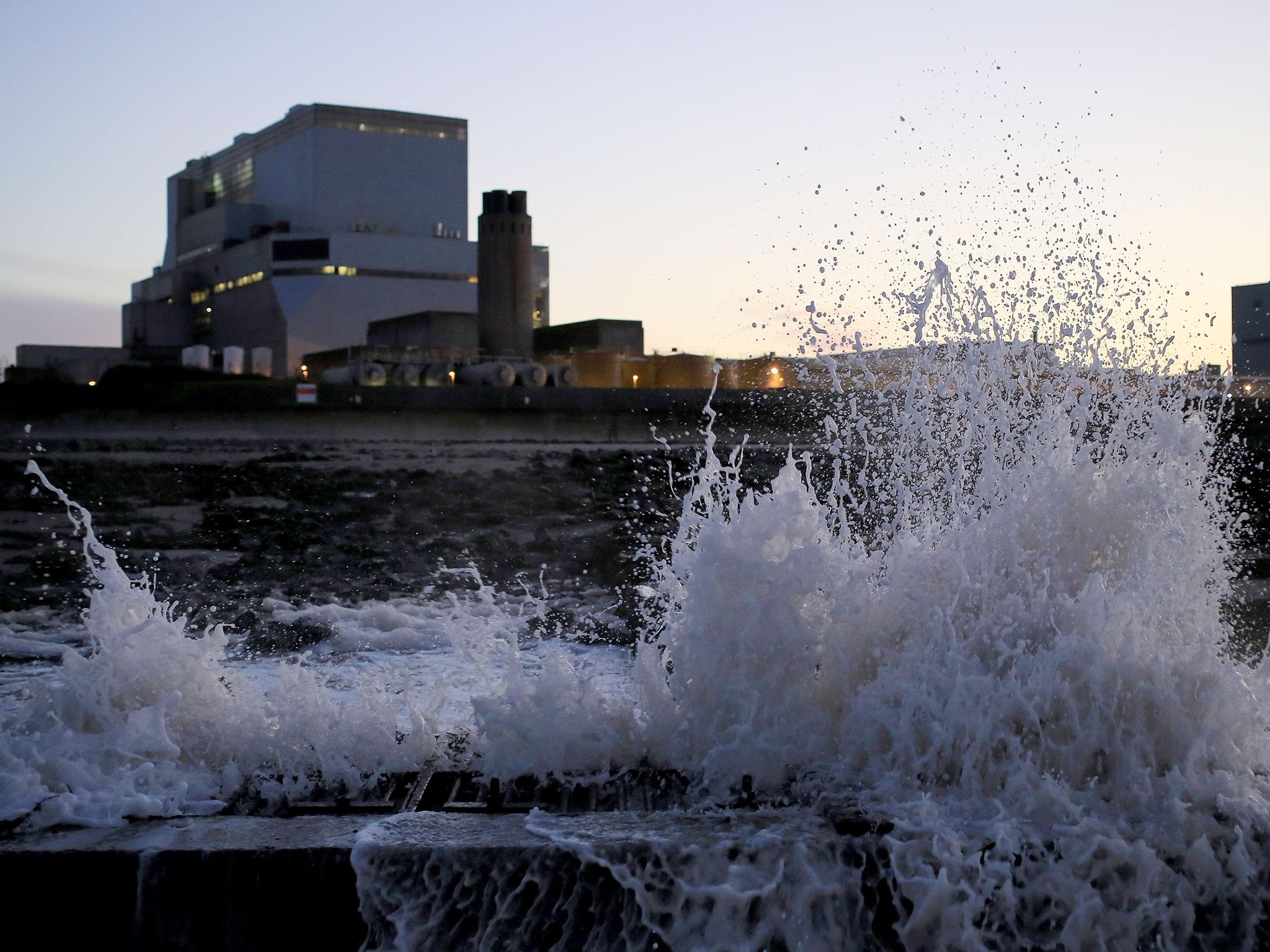Nuclear security: Government pouring millions into steeling power plants from potential terror attacks
While forces around the country have seen their budgets slashed under the Tories, funding for the nuclear authority has risen by 55 per cent since 2010

Millions of pounds in extra funding is being pumped into the armed police force tasked to protect Britain’s nuclear power stations from terror strikes, The Independent can now reveal.
The drive to steel Britain’s nuclear facilities against future attack has seen spending soar to the point that it has almost tripled since the 7/7 bombings, over a period when other forces faced deep cuts.
The specialist service, which also guards the transport of nuclear matter that could potentially be weaponised, had its spending power boosted six per cent in the last year alone, with the lion’s share going towards staffing.
Officials insist the continuous increases are not in response to a specific threat on power stations, but the official UK terror threat level is currently set at “severe”, meaning an attack of sorts is highly likely, and nuclear sites have been identified by the government as potential targets.
Earlier this year the Office for Nuclear Regulation which holds sway over security warned of the growing threat of attack on Britain’s operational reactors.
It also emerged that the terror cell responsible for the recent Paris and Brussels attacks were thought to be planning a strike on a nuclear power station.
Nuclear security is especially under the spotlight now that the Government is deciding whether to sign a deal that would see the Chinese government heavily invested in the UK’s planned power station at Hinkley Point.
For security reasons the Civil Nuclear Constabulary does not advertise the exact number or officers at its disposal, but the armed service does say it has “over 1,000 highly trained” officers and staff to protect 14 sites.
The force, including firearms experts, dog handlers, marine and road escort teams, is administered by the Civil Nuclear Police Authority, in whose public documents the growing sums now committed to nuclear protection are laid bare.
In 2006/07, the year after bombs ripped through trains and a bus in London leaving 52 dead, the authority received just £26.7m.
The following year as the government tried to get to grips with the new terror threat, spending on the authority was inflated by 28.5 per cent to more than £34m. By the 2010 General Election it had increased to £41.2m.
A statement from the CNPA said: “There was a capability and capacity uplift in response to security assessments undertaken by the Civil Nuclear Constabulary, the Office for Nuclear Regulation, the Site Licence Companies who operate civil nuclear sites and other government agencies, as well as
a government reassessment of risk and postulated threats to civil nuclear sites.”
With the arrival of the Tory Government came further successive increases, by 18.5 per cent in 2010/11, 16.8 per cent the next year followed by a further 11 per cent the year after.
Further increases brought the budget to £75.6m in the year 2015/16, despite some reports that the CNC would suffer cuts earlier this year.
While forces around the country have had budgets slashed under the Tories, money going to the nuclear authority has risen 55 per cent since 2010. Around 75 per cent of the body’s funding goes on staffing.
Officials at the Office for Nuclear Regulation, which approves security plans for nuclear sites, said it set standards according to the “wider picture” of potential threats.
But buried in the body’s 2016-20 strategic plan are bleak references to the growing threat of attack on Britain’s reactors, which account for nearly a fifth of the country’s electricity.
It was the first time the ONR has explicitly acknowledged the growing terrorist threat to the nuclear industry.
The document stated: “The threat of terrorism in the nuclear sector will continue to be managed proportionately and effectively through national and international capabilities.”
In March it emerged that the men who blew themselves up in Brussels this year killing more than 30 people had secretly filmed the routine of Belgium’s nuclear programme chief.
It is thought their spying operation was connected to a potential plot to steal nuclear material.
The ONR’s strategic plan also said: “The capabilities of potential adversaries to operate in cyberspace will continue to grow.”
It is not clear exactly where the Government believes such an attack may come from, but it was written as the Government pushed ahead with its plan for a new £18bn power station at Hinkley Point.
Since coming to power Theresa May has paused the project which the Chinese government is set to pour billions of pounds into.
Nick Timothy, a senior adviser to the Prime Minister has previously warned that China “could use their role to build weaknesses into computer systems which will allow them to shut down Britain’s energy production at will.”
Ministers are expected to announce whether they will push ahead with the scheme in the early autumn.
Subscribe to Independent Premium to bookmark this article
Want to bookmark your favourite articles and stories to read or reference later? Start your Independent Premium subscription today.

Join our commenting forum
Join thought-provoking conversations, follow other Independent readers and see their replies